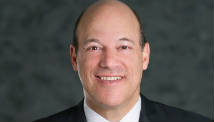AUSTIN, Texas Lance Armstrong is in talks to return a portion of the millions of dollars in taxpayer money his former team, U.S. Postal Service, once received, CBS News has learned.
Senior Justice Department officials have recommended that the government join a lawsuit filed by one of Armstrong's former teammates that accuses the disgraced cyclist of defrauding the federal government. Armstrong's U.S. Postal sponsorship prohibited illegal doping.
CBS News has also learned Armstrong has indicated he may be willing to testify against others involved in illegal doping.
Earlier Monday, Armstrong apologized to the staff at his Livestrong cancer foundation before heading to an interview with Oprah Winfrey, a person with direct knowledge of the meeting told The Associated Press.
Winfrey will be on "CBS This Morning" on Tuesday to discuss her interview with Armstrong.
The person spoke on condition of anonymity because the discussion was private.

Lance Armstrong to "speak candidly" to Oprah Winfrey

Lance Armstrong
Stripped last year of his seven Tour de France titles because of doping charges, Armstrong addressed the staff Monday and said, "I'm sorry." The person said the disgraced cyclist choked up and several employees cried during the session.
The person also said Armstrong apologized for letting the staff down and putting Livestrong at risk but he did not make a direct confession to the group about using banned drugs. He said he would try to restore the foundation's reputation, and urged the group to continue fighting for the charity's mission of helping cancer patients and their families.
After the meeting, Armstrong, his legal team and close advisers gathered at a downtown Austin hotel for the interview.
The cyclist will make a limited confession to Winfrey about his role as the head of a long-running scheme to dominate the Tour with the aid of performance-enhancing drugs, a person with knowledge of the situation has told the AP.
Winfrey and her crew had earlier said they would film the interview, to be broadcast Thursday, at his home but the location apparently changed to a hotel. Local and international news crews staked out positions in front of the cyclist's Spanish-style villa before dawn, hoping to catch a glimpse of Winfrey or Armstrong.
Armstrong still managed to slip away for a run Monday morning despite the crowds gathering outside his house. He returned home by cutting through a neighbor's yard and hopping a fence.
During a jog on Sunday, Armstrong talked to the AP for a few minutes saying, "I'm calm, I'm at ease and ready to speak candidly." He declined to go into specifics.
Armstrong lost all seven Tour titles following a voluminous U.S. Anti-Doping Agency report that portrayed him as a ruthless competitor, willing to go to any lengths to win the prestigious race. USADA chief executive Travis Tygart labeled the doping regimen allegedly carried out by the U.S. Postal Service team that Armstrong once led, "The most sophisticated, professionalized and successful doping program that sport has ever seen."

Anti-doping chief: Armstrong bullied witnesses
In a recent "60 Minutes Sports" interview, Tygart described Armstrong and his team of doctors, coaches and riders as similar to a "Mafia" that kept their secret for years and intimidated riders into silently following their illegal methods.
Yet Armstrong looked like just another runner getting in his roadwork when he talked to the AP, wearing a red jersey and black shorts, sunglasses and a white baseball cap pulled down to his eyes. Leaning into a reporter's car on the shoulder of a busy Austin road, he seemed unfazed by the attention and the news crews that made stops at his home. He cracked a few jokes about all the reporters vying for his attention, then added, "but now I want to finish my run," and took off down the road.
The interview with Winfrey will be Armstrong's first public response to the USADA report. Armstrong is not expected to provide a detailed account about his involvement, nor address in depth many of the specific allegations in the more than 1,000-page USADA report.
In a text to the AP on Saturday, Armstrong said: "I told her (Winfrey) to go wherever she wants and I'll answer the questions directly, honestly and candidly. That's all I can say."
After a federal investigation of the cyclist was dropped without charges being brought last year, USADA stepped in with an investigation of its own. The agency deposed 11 former teammates and accused Armstrong of masterminding a complex and brazen drug program that included steroids, blood boosters and a range of other performance-enhancers.

Lance Armstrong offered donation to USADA during investigation
Once all the information was out and his reputation shattered, Armstrong defiantly tweeted a picture of himself on a couch at home with all seven of the yellow leader's jerseys on display in frames behind him. But the preponderance of evidence in the USADA report and pending legal challenges on several fronts apparently forced him to change tactics after more a decade of denials.
He still faces legal problems.
Former teammate Floyd Landis, who was stripped of the 2006 Tour de France title for doping, has filed a federal whistle-blower lawsuit that accused Armstrong of defrauding the U.S. Postal Service. The Justice Department has yet to decide whether it will join the suit as a plaintiff.
The London-based Sunday Times also is suing Armstrong to recover about $500,000 it paid him to settle a libel lawsuit. On Sunday, the newspaper took out a full-page ad in the Chicago Tribune, offering Winfrey suggestions for what questions to ask Armstrong. Dallas-based SCA Promotions, which tried to deny Armstrong a promised bonus for a Tour de France win, has threatened to bring yet another lawsuit seeking to recover more than $7.5 million an arbitration panel awarded the cyclist in that dispute.
The lawsuit most likely to be influenced by a confession might be the Sunday Times case. Potential perjury charges stemming from Armstrong's sworn testimony in the 2005 arbitration fight would not apply because of the statute of limitations. Armstrong was not deposed during the federal investigation that was closed last year.
Many of his sponsors dropped Armstrong after the damning USADA report — at the cost of tens of millions of dollars — and soon after, he left the board of Livestrong, which he founded in 1997. Armstrong is still said to be worth about $100 million.
Livestrong might be one reason Armstrong has decided to come forward with an apology and limited confession. The charity supports cancer patients and still faces an image problem because of its association with Armstrong. He also may be hoping a confession would allow him to return to competition in the elite triathlon or running events he participated in after his cycling career.
World Anti-Doping Code rules state his lifetime ban cannot be reduced to less than eight years. WADA and U.S. Anti-Doping officials could agree to reduce the ban further depending on what information Armstrong provides and his level of cooperation.














